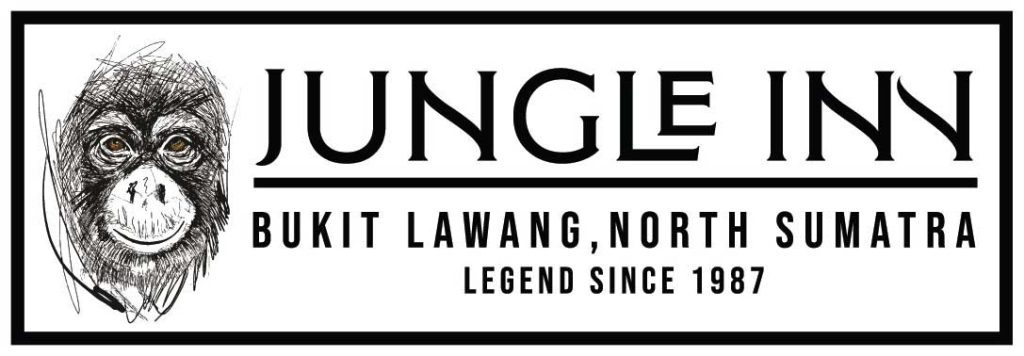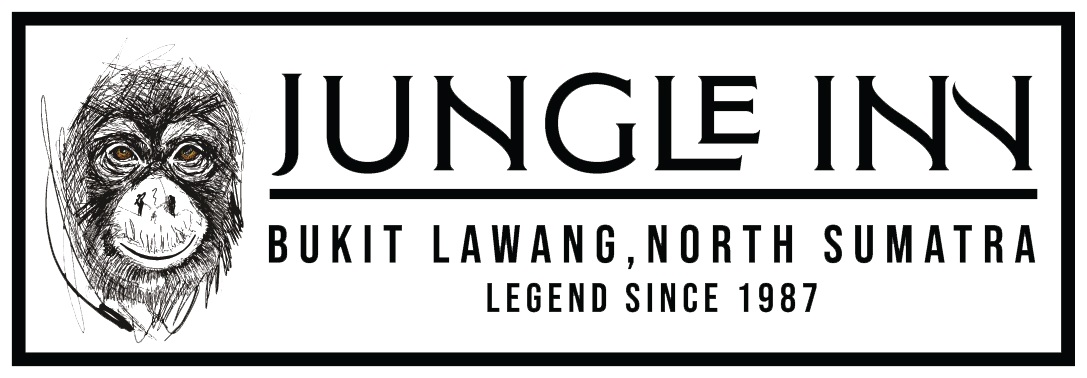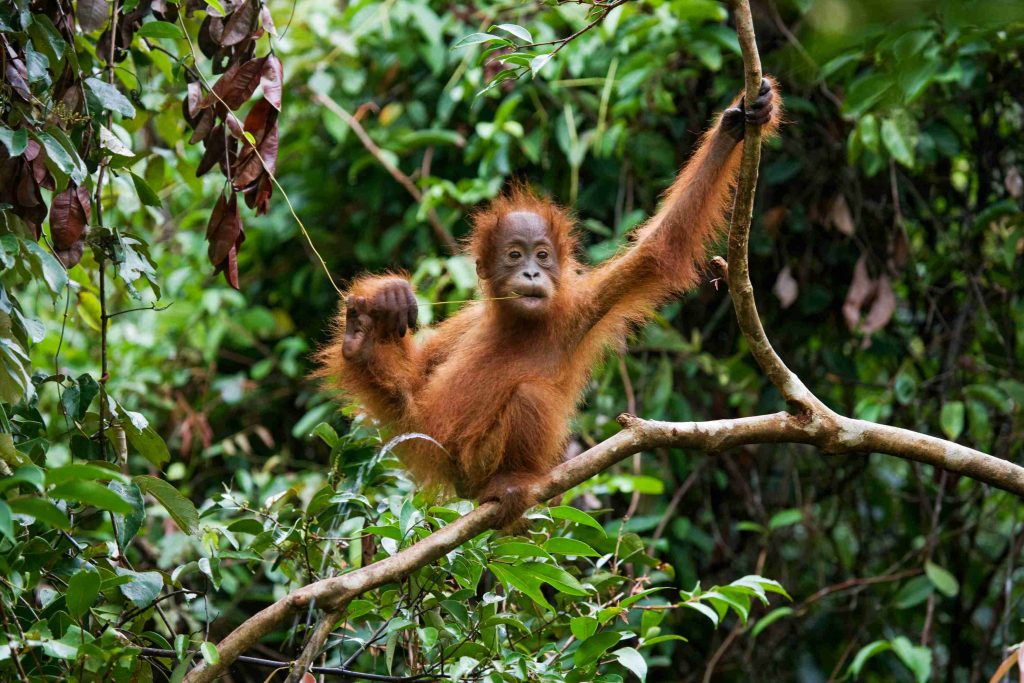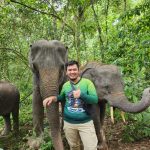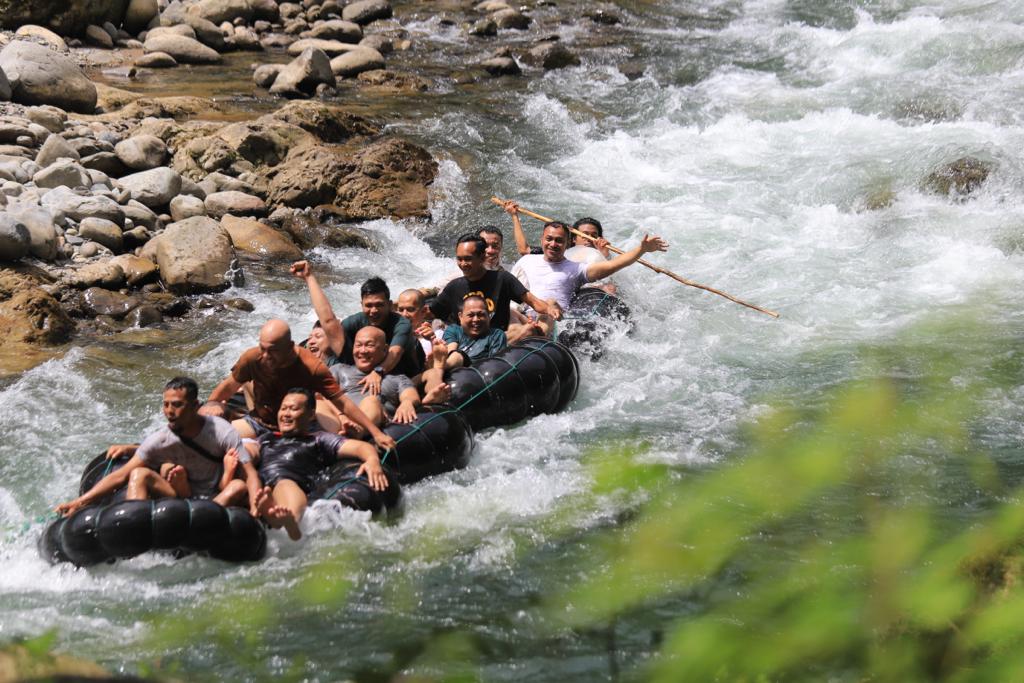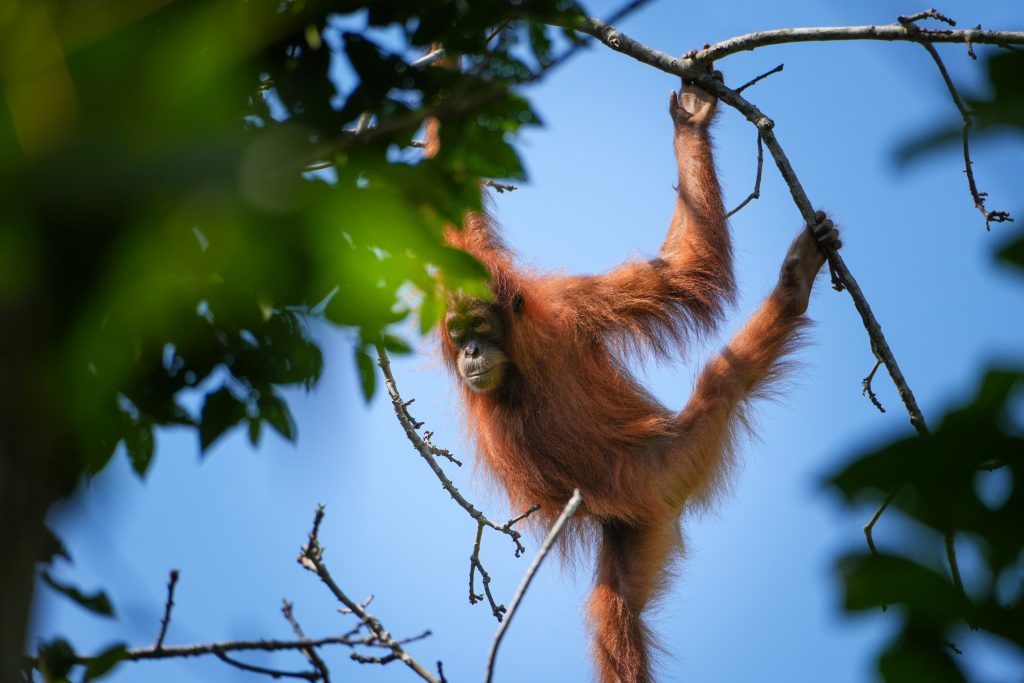Bukit Lawang, nestled in the lush rainforests of North Sumatra, Indonesia, is a haven for biodiversity, teeming with a wide variety of wildlife species. However, this beautiful ecosystem faces numerous threats, including deforestation, poaching, and human-wildlife conflicts.
To preserve this precious natural treasure and protect its inhabitants, local and international organizations have joined forces in a collaborative effort to implement wildlife conservation initiatives. This article sheds light on the commendable efforts undertaken by the community of Bukit Lawang to safeguard their environment and the remarkable impact they have achieved.
Wildlife Conservation in Action: Supporting Bukit Lawang’s Efforts
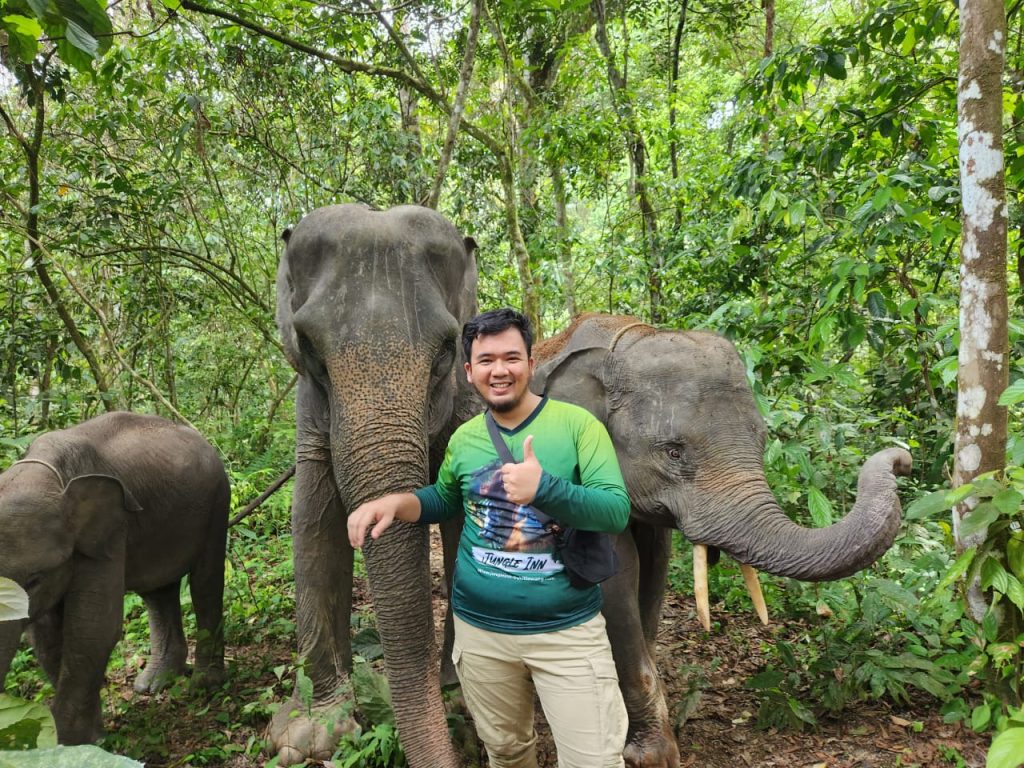
Here’s we’ll highlights the ongoing wildlife conservation initiatives in Bukit Lawang and the crucial role played by local organizations, communities, and concerned individuals in safeguarding these invaluable natural treasures.
Preserving Orangutan Habitat
Bukit Lawang is renowned for its orangutan rehabilitation center, established in the 1970s to rescue and rehabilitate captive orangutans, as well as those displaced by logging and other human activities. The center, operated by the Gunung Leuser National Park authorities and supported by dedicated local and international volunteers, provides a safe haven for these magnificent primates. Orangutans are given the necessary care, medical attention, and access to forested areas where they can relearn essential survival skills. Once ready, they are released back into the wild, contributing to the revitalization of the local orangutan population.
Reforestation and Habitat Restoration
To ensure the long-term survival of orangutans and other wildlife species, reforestation efforts have become a critical component of conservation initiatives in Bukit Lawang. Local communities, together with NGOs and government agencies, are actively involved in replanting native tree species and restoring degraded forest areas. Reforestation not only helps to recreate suitable habitat for orangutans but also promotes the return of other essential flora and fauna, revitalizing the entire ecosystem. These efforts play a vital role in conserving biodiversity and mitigating the impacts of deforestation and illegal logging.
Also read : 10+ Must Visit Places in Padang to Explore West Sumatra
Community Involvement and Sustainable Tourism
Sustainable tourism has emerged as a powerful tool in supporting wildlife conservation in Bukit Lawang. The local community has recognized the value of preserving their natural environment and its resident species, realizing that ecotourism can provide a sustainable source of income while protecting the area’s ecological integrity. Community-based ecotourism initiatives have been established to promote responsible tourism practices, ensuring that visitors have a positive impact on the environment and local communities. These initiatives offer educational programs, guided nature tours, and homestay opportunities, allowing visitors to experience the beauty of Bukit Lawang while actively contributing to its conservation.
Wildlife Protection and Anti-Poaching Measures
Efforts to combat poaching and illegal wildlife trade are paramount to safeguarding Bukit Lawang’s wildlife population. Conservation organizations collaborate with local authorities to enforce strict measures against poaching, raise awareness about the importance of wildlife protection, and provide alternative livelihood options for communities that depend on unsustainable activities. Anti-poaching patrols, wildlife monitoring, and intelligence gathering play a crucial role in preventing wildlife crimes and ensuring the safety of vulnerable species.
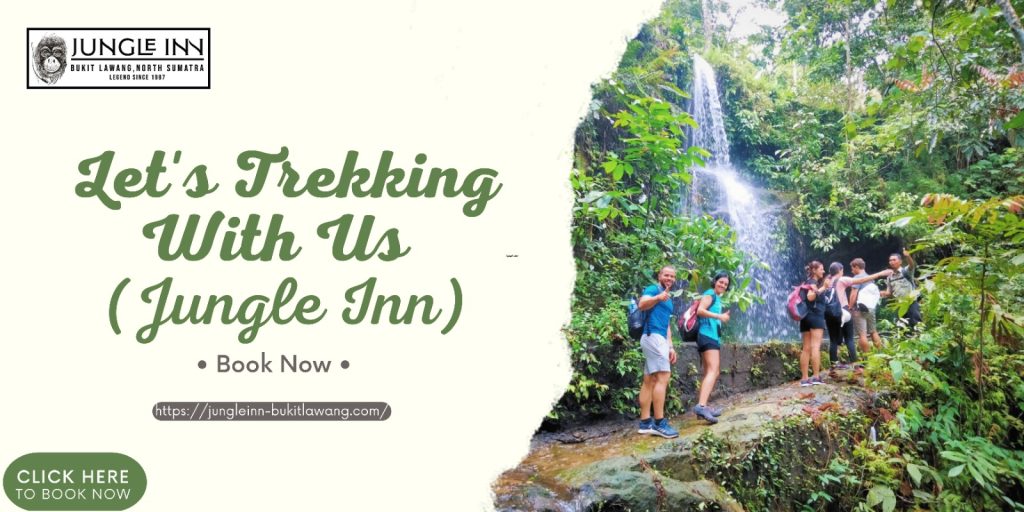
International Collaboration and Funding Support
The conservation efforts in Bukit Lawang would not be possible without the support of international organizations, governmental agencies, and concerned individuals from around the world. Collaboration between local stakeholders and international partners brings valuable expertise, funding, and resources to the table, strengthening the capacity for conservation initiatives.
Grants, donations, and volunteer programs facilitate the implementation of various projects, including research, education, and infrastructure development, which contribute to the long-term sustainability of Bukit Lawang’s conservation efforts.
Understanding Bukit Lawang’s Biodiversity
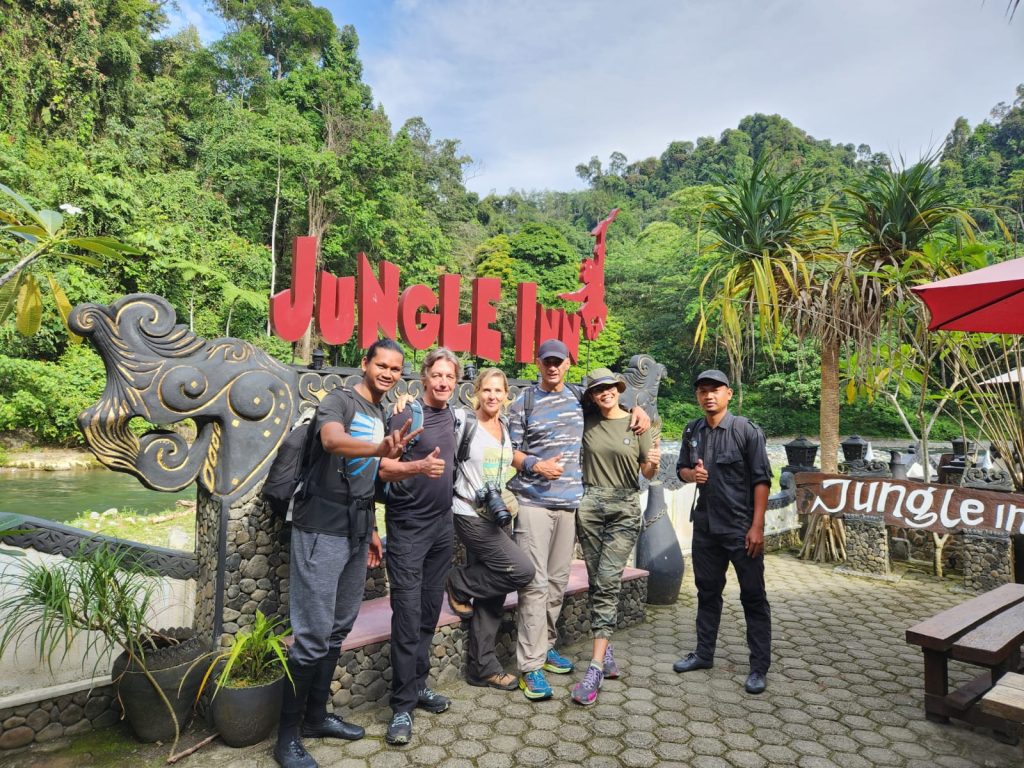
Bukit Lawang boasts an incredibly diverse ecosystem, being part of the Gunung Leuser National Park – a UNESCO World Heritage Site. This pristine habitat is home to iconic species such as the critically endangered Sumatran orangutan, Sumatran tiger, Sumatran elephant, and various endemic plant species. The rich flora and fauna make it an essential location for research, ecological balance, and as a key player in maintaining the global climate.
Challenges to Wildlife Conservation
Despite its ecological significance, Bukit Lawang faces significant challenges that threaten its delicate balance. Deforestation for agriculture, logging, and palm oil plantations have led to habitat loss, displacing wildlife populations and increasing human-wildlife conflicts. Illegal poaching, driven by the demand for exotic pets and traditional medicine, further threatens the survival of endangered species.
Also read : Eco Friendly Travel Hotel in Bukit Lawang : Jungle Inn & Restaurant
Community-Led Conservation Efforts
Bukit Lawang’s local community recognizes the importance of their natural heritage and has taken an active stance in wildlife conservation. Empowered by knowledge and guided by conservation experts, the community has been instrumental in initiating and participating in several impactful initiatives:
- Reforestation Projects: Community-led reforestation efforts have been ongoing to restore degraded areas and create a corridor for wildlife movement. Volunteers, local residents, and conservation organizations have come together to plant thousands of trees, improving both habitat quality and connectivity.
- Wildlife Rehabilitation Center: The Sumatran orangutan rehabilitation center at Bukit Lawang is a shining example of conservation in action. The center rescues and rehabilitates orphaned, injured, or displaced orangutans, aiming to release them back into the wild once they are ready.
- Ecotourism and Education: Sustainable ecotourism has been embraced as a means of generating income while simultaneously raising awareness about wildlife conservation. Guided tours educate visitors about the local ecosystem, emphasizing the importance of conservation and ethical wildlife interactions.
- Community Patrols: Local communities have formed anti-poaching patrols, monitoring wildlife populations and reporting illegal activities to the authorities. These efforts have led to a decline in poaching incidents and a safer environment for wildlife.
Support from International Organizations
The success of Bukit Lawang’s wildlife conservation endeavors has been bolstered by the support of international organizations, conservation NGOs, and concerned individuals worldwide. Financial aid, technical expertise, and collaborative partnerships have played a pivotal role in expanding the scope and effectiveness of local conservation efforts.
Conclusion
Bukit Lawang’s ongoing wildlife conservation efforts are a testament to the power of collaboration, community involvement, and sustainable practices in protecting and restoring fragile ecosystems. By preserving orangutan habitat, engaging in reforestation, promoting sustainable tourism, combating poaching, and fostering international partnerships, Bukit Lawang is setting a positive example for wildlife conservation globally. It is essential that we continue to support and amplify these efforts, recognizing the vital importance of protecting our natural heritage for future generations.
Bukit Lawang serves as a poignant reminder that wildlife conservation is not an isolated endeavor; it requires a united front of passionate individuals, communities, and international organizations committed to protecting our planet’s invaluable biodiversity. By understanding the interdependence between humans and wildlife, Bukit Lawang exemplifies how sustainable practices, education, and community engagement can mitigate the threats posed by human activities and secure a brighter future for both people and wildlife alike. As the world watches Bukit Lawang’s triumphs, it serves as an inspiration for similar conservation efforts worldwide.
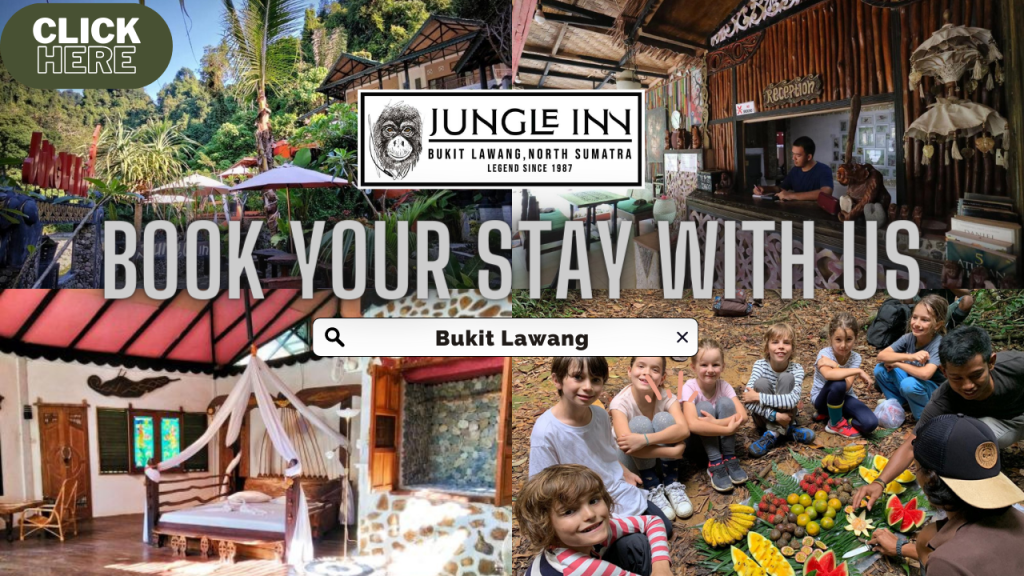
Alfath Dewantara (Alde) is a passionate advocate for Bukit Lawang and Indonesian travel. As a manager of Jungle Inn & Restaurant, Alde is dedicated to providing guests with an unforgettable experience.
